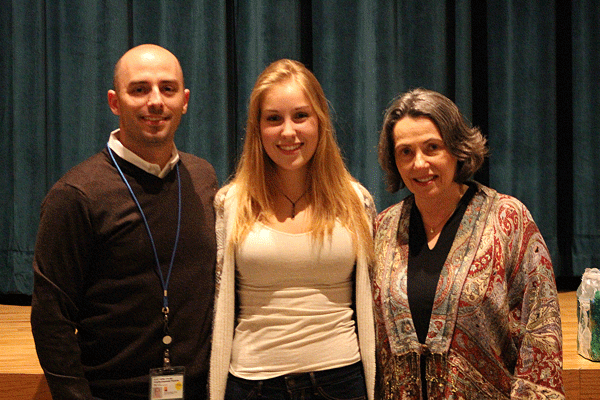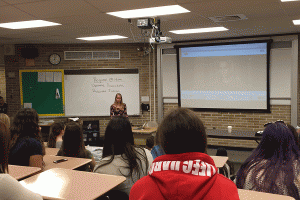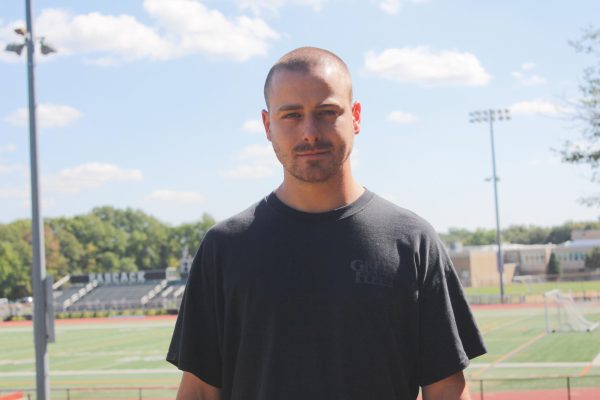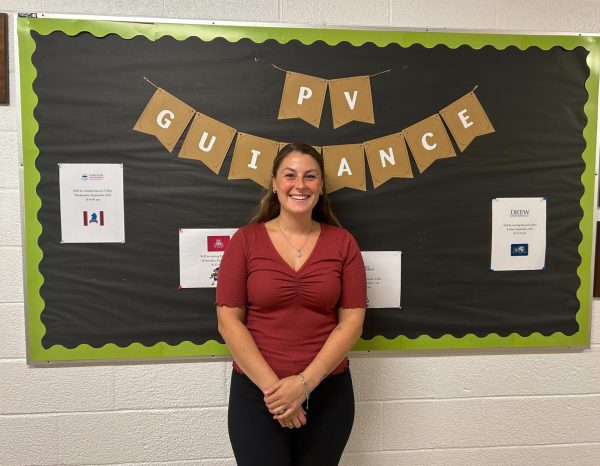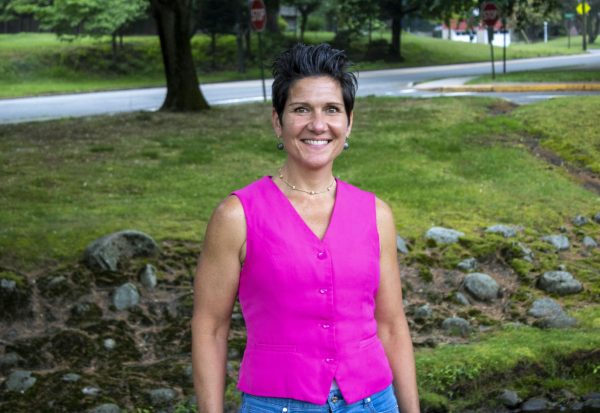PV student holds assembly for eating disorder awareness
Junior Valery Berenshtein uses personal experience to teach about the disease
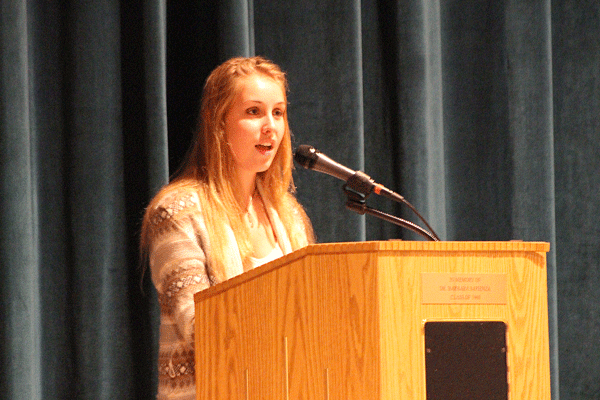
Valery Berenshtein recently talking about eating disorder awareness.
“Nobody who has an eating disorder chooses to have an eating disorder.”
This is just one of the lessons Pascack Valley Junior Valery Berenshtein has learned over the course of the past few years, during her struggle with an eating disorder of her own. This lesson also served as a teaching point to those who attended her recent awareness event at PV.
After recovering to the point where she was comfortable sharing her story publicly, Berenshtein chose to take her experience and teach others about the severity and misconceptions of people with the disease. In an effort to raise awareness, Berenshtein held an information night in the PV auditorium on Wednesday, Feb. 3. All were invited to come and admission was free.
As a freshman and sophomore, Berenshtein struggled with anorexia and rapid weight loss. After being made fun of in middle school for being slightly overweight, being called names such as “earthquake,” Berenshtein wanted a new start in high school. She started to eat less and less, eventually starving herself and putting her body in a dire situation. Little did she know, she was developing a serious eating disorder.
The awareness night was the first time that she had addressed this topic to a large group of adults. However, she did not have any nerves, and spoke confidently and with ease. “I was not hesitant at all. I knew what I wanted to do – to spread awareness of and educate about eating disorders – and made sure that I did it to the best of my ability,” she said.
At the event, Berenshtein not only shared her own story, but also invited experienced specialists Barbara Hale and Cliff Hamilton to speak to the audience.
Hale, a psychologist and graduate from Rutgers University, has worked in the Eating Disorder Program at Atlantic Health since 2008.
Hamilton, on the other hand, is an adult, child, and adolescent psychiatrist who is also working in an Eating Disorder Program. He currently operates at Overlook Medical Center in Summit, New Jersey, the same hospital Berenshtein herself was admitted to.
Hale and Hamilton taught the audience about the scientific research and knowledge behind the illness through brain patterns and other studies. They also delved into the typical warning signs, tendencies, and real-life actions that can be taken to prevent an eating disorder from developing. Towards the end of the presentation, Berenshtein and the speakers took questions from an engaged and interested crowd.
“It took me a fairly long time to pull this together because the date of the event needed to work for my guest speakers,” Berenshtein said.
To hold the night, she had to pass the idea through the administration, create flyers and advertisements through social media, and invite people from local schools and governments.
“I really wanted to have as many people attend because this is a very prevalent issue, and the more people know about it, the more chances they have to preventing it at least in their homes,” she continued.
This was not the first time she has held an event of this type raising awareness for the disease, and she does not plan on making it her last. After returning to school from the hospital last year, she held an assembly for her fellow students during one Pascack Period. Here, she spoke of her story and what she had learned in the lecture hall, which was packed from wall to wall with her peers.
“I was astonished at how many people came to listen and support me,” she said. “To see so many peers and faculty members in one room, attentively listening to me, is something I will never forget.” She added that the success of this assembly encouraged her and gave her confidence to go forward with the full-fledged awareness night.
In the future, she noted that this is “definitely” something she wants to continue. With the National Eating Disorder Week (Feb. 22 – Feb. 26) quickly approaching, she said she will be brainstorming some quick fundraising ideas to raise money for the National Eating Disorder Association.
If there is one thing Berenshtein wants everyone to take away from her efforts, is that eating disorders are mental illnesses- not choices. It is not a person’s fault if they have an eating disorder.
“The one thing that every Eating Disorder victim wants is to be understand and to not be blamed for their actions. I cannot stress that enough.”


